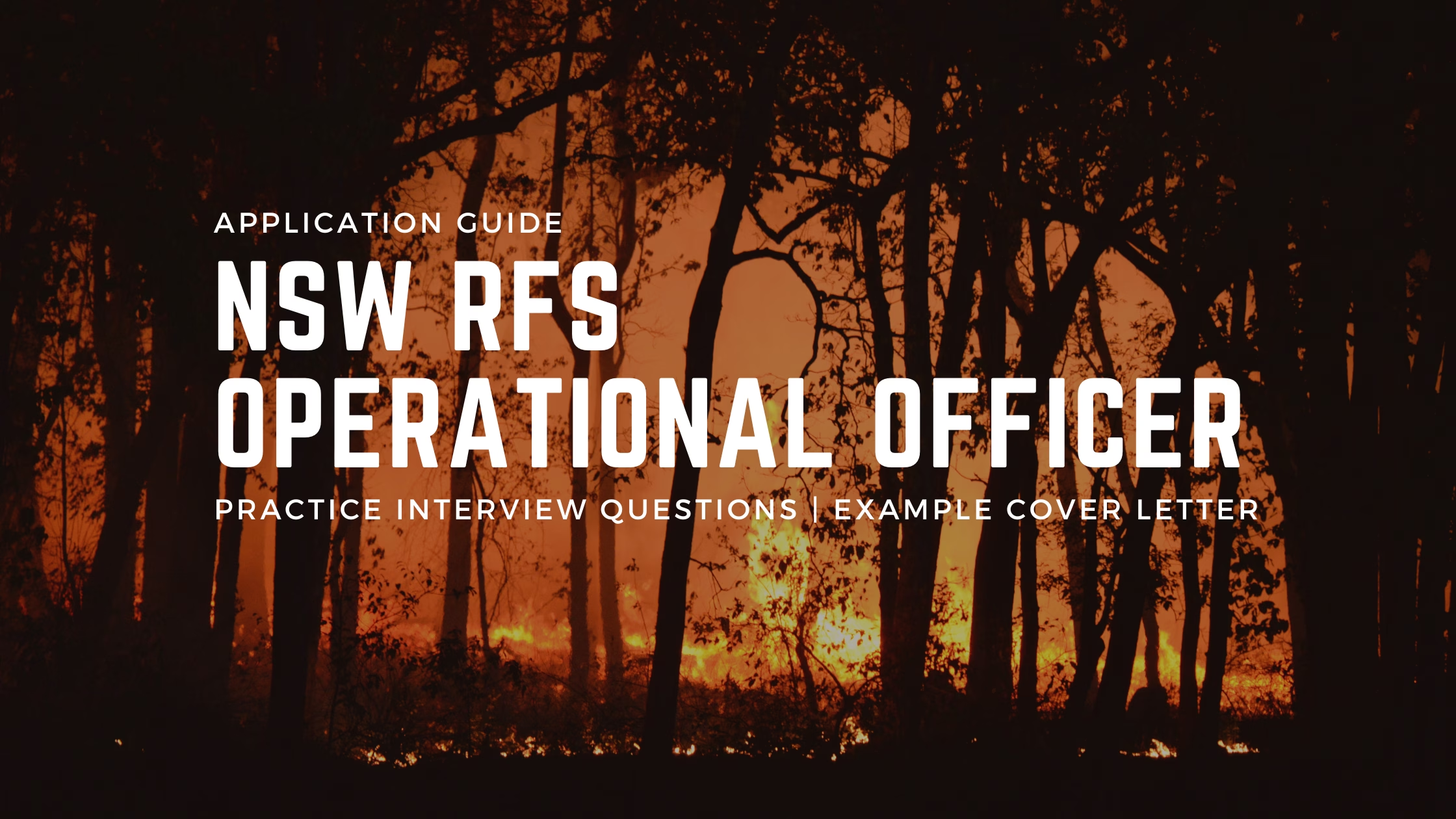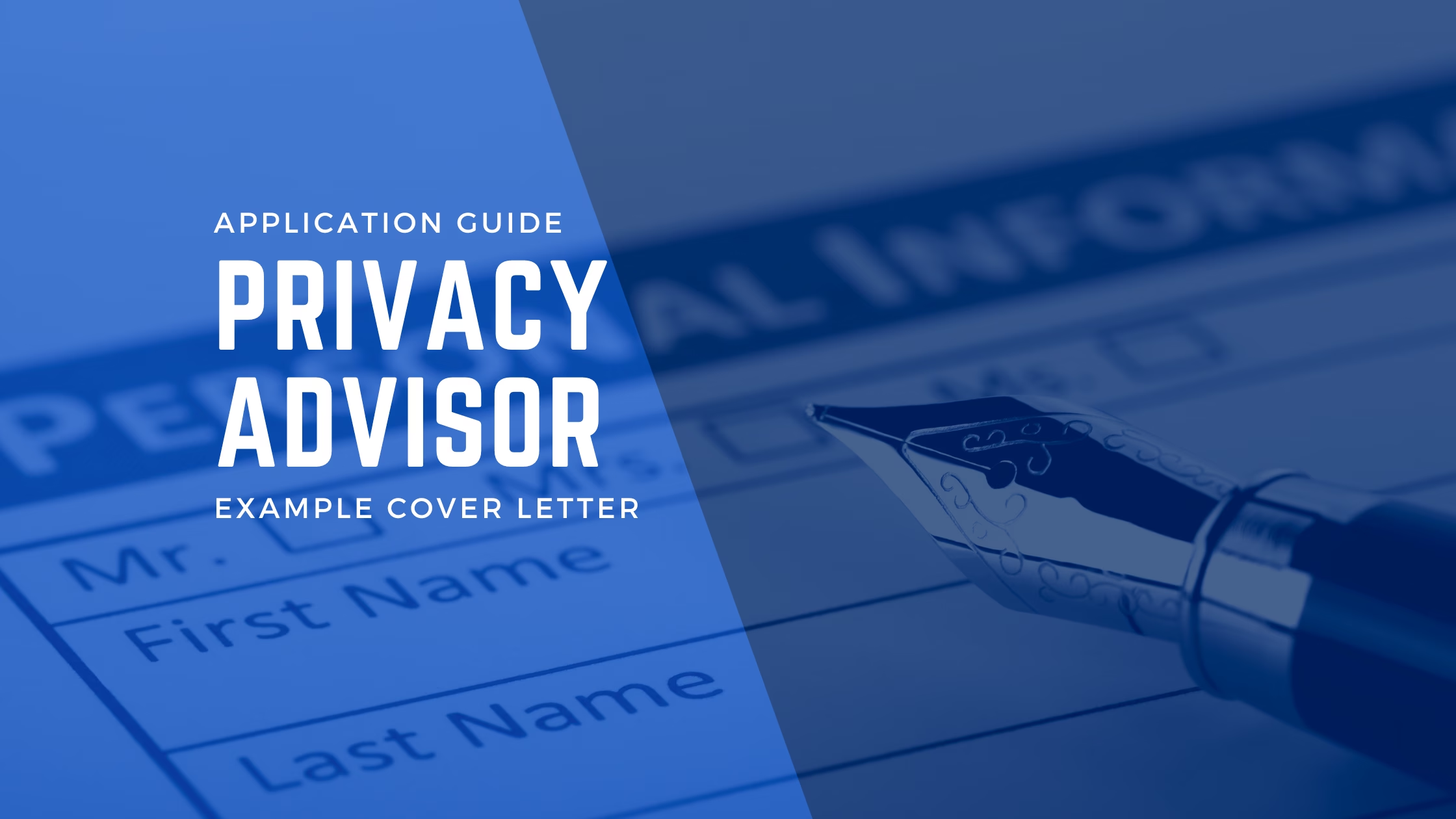If you are a volunteer with the RFS and have wanted to get paid for what you love, this might be the best opportunity for you all year.
The RFS OPO Operational Officer Recruitment pathway is a proven path into a paid job with the RFS, where you will contribute to fire mitigation, emergency response, and volunteer management across diverse regions in New South Wales. Through the Operational Officer Program, you’ll gain a wide range of experience in bush fire management, volunteer firefighting mentorship, and community protection initiatives.
You can apply for RFS Operational Officer Level 2 right now. This is the best level to come in at if you’re an experienced volunteer or an existing staff member seeking a promotion.
I’m going to share with you my insider tips on the recruitment process to help you put your best case forward.
If you’re looking to stand out from the crowd, consider how practical experience, a strong cover letter, and well-structured interview responses can all make a significant impact.
Table of Contents
Job Overview for RFS OPO Level 2
| Position Title | Operational Officer Level 2 (RFS OPO2) |
| Organisation/Entity | NSW Rural Fire Service (RFS) |
| Job Location | Statewide (Multiple Locations, including Regional NSW) |
| Work Type | Full-Time, Ongoing |
| Base Pay | $98,334 – $108,502 p.a. + Super (Package up to $120,980) |
| Closing Date | CLOSED 9 February 2025 |
Who Would Make a Great RFS OpO2?
The NSW Rural Fire Service stands as the lead agency for bush fire management in the state, coordinating emergency services to protect lives, property, and the environment. The Operational Officer Program equips individuals with the skills and knowledge to excel in a broad spectrum of activities—from fire mitigation and volunteer firefighting support to community protection and crisis response.
If you’re an emergency services volunteer, particularly with the NSW Rural Fire Service (RFS), you’ve likely considered how to transition into a paid role with the agency.
The NSW RFS offers three major bulk recruitment programs throughout the year, providing pathways into the organisation. Two of these – the Mitigation Officer and Operational Communication Centre recruitment programs – are open to everyone, including current RFS volunteers and other candidates. These are genuine entry-level opportunities for those looking to join the agency.
The third pathway is through the Operational Officer Program (OPO).
The OPO Program includes an entry-level position as a Level 1 Operational Officer. However, this post focuses on the Level 2 recruitment, which is currently open for applications.
The Level 2 OPO role is ideal for anyone with prior experience volunteering with the NSW RFS or for existing staff members seeking a promotion. While the Level 1 OPO role is designed to be flexible and open to all applicants, Level 2 candidates must demonstrate more direct and relevant experience with the RFS.
Challenges for Operational Officer Level 2
Being an Operational Officer Level 2 requires a blend of physical stamina, strategic thinking, and emotional resilience. You’ll often work alongside volunteer teams who look to you for guidance on incident coordination and best practices in safety systems. Managing multiple locations and adapting to changing environments—such as urban interfaces, remote areas, and bushland—are critical challenges.
Why This Is A Great Public Sector Opportunity
Stepping into the RFS Operational Officer Recruitment pool offers compelling benefits and a chance to grow your career within NSW public sector careers. Below are several reasons why this role may be your perfect fit:
- Competitive Remuneration and Benefits: Earn an attractive annual salary, get kitted out in RFS uniform, and potentially receive additional allowances.
- Nominate Your Location: The Operational Officer Role is available across NSW. As part of the recruitment process you can nominate your preferred RFS District Office that you want to be considered for.
- Great For Volunteer RFS Crew Leaders: Many experienced volunteers have completed the NSW RFS Crew Leader qualification, which is a requirement of this role. This requirement is going to reduce the level of competition for the role, improving your chances.
- Talent Pool Opportunities: Even if not immediately successful for a specific location, you could be placed in a recruitment (talent) pool. This opens doors to future job opportunities when vacancies arise.
- Career Growth Opportunities: The Operational Officer Program is the flagship talent pipeline for the agency. Once you are in, you’ll get access to deployments and training that make you an ideal candidate for more senior roles. Many District Managers have been through the OpO program.
- Training Plans: The RFS invest heavily in their OpO training courses, which means you’ll get a load more qualifications during your first 12 months, and many visits to the new state training facility in Dubbo.
Application Requirements For RFS Operational Officer 2 Recruitment
If you’re ready to take the leap, you’ll find the application process straightforward yet thorough. The NSW Rural Fire Service has outlined specific qualifications and documentation needed to ensure that every candidate can effectively contribute to emergency services.
Applicants must prepare a cover letter (maximum two pages) highlighting their suitability for the role, including any volunteer firefighting background or expertise in emergency services. Make sure your cover letter clearly addresses the essential role requirements.
You’ll also submit a comprehensive resume with two professional referees.
The RFS requires all candidates to provide copies of their qualifications, such as RFS Crew Leader or Incident Management Team (IMT) certifications. If you already have these certificates, be sure to upload them with your application. If you don’t, start organising them now. If you’re an RFS volunteer, contact your District Office and request a printout of all your qualifications to include in your application.
If you don’t have the paperwork ready, don’t let that stop you from applying. Clearly outline the qualifications you hold in your application and indicate that you’re happy to provide documentation during the recruitment process. Keep in mind that the RFS will verify relevant qualifications internally for applications submitted by NSW RFS volunteers.
All applications go through the I Work for NSW portal. Before you hit submit, make sure you get someone to review your documents and be clear that you have covered off on all the essential requirements. If you don’t, your application won’t progress.
Essential Role Requirements
You must clearly demonstrate that you meet the following requirements as part of your application.
- RFS Crew Leader Supervision Qualification or equivalent expertise
- RFS Level 2 Principal or Assistant IMT Qualification (or equivalent)
- Certificate IV in a relevant discipline or equivalent practical experience
- Current Driver Licence and willingness to travel
- Completion of an Operational Officer Medical Assessment certifying the required level of health and fitness
These certifications ensure that each Operational Officer Level 2 can handle the demands of emergency response and maintain the highest safety standards.
What To Highlight In Your Cover Letter
I cannot stress this enough – focus on the essential criteria first. This must be clearly demonstrated. Your application is one of hundreds that will be reviewed, and often very quickly.
You will also want to make your application stand out by showing other relevant skills and experience.
You can emphasise your knowledge of fire mitigation practices, such as creating buffer zones and conducting planned burns. Highlight any background you have in volunteer firefighting, particularly if it includes leadership responsibilities, as this demonstrates both experience and initiative.
You should also showcase your familiarity with risk management principles and safety systems, especially in the context of emergency services. Additionally, include examples of your experience mentoring small teams in high-pressure environments, as this reflects your ability to lead effectively under challenging conditions.
Application Checklist for NSW RFS Operational Officer Level 2
| Item | Action |
| Review RFS Operational Officer Recruitment details | Read the details in the job ad, focusing on essential requirements |
| Prepare Resume | Highlight volunteer firefighting, risk management, and emergency response experience |
| Cover Letter | Address essential requirements using examples of field operational coordination |
| Gather Qualifications | Ensure Crew Leader Supervision and RFS IMT qualification documents are ready |
| Get your cover letter reviewed | Seek professional feedback to ensure clarity and persuasiveness |
| Submit Application | Upload all documents via the I Work for NSW portal before the deadline |
Candidate Profile
Imagine Jordan, a volunteer firefighter with six years of experience in his busy coastal brigade.
During the week, he works in retail, where he has spent the past two years as a team leader, honing his leadership and organisational skills. But it’s in his volunteer role with the RFS that Jordan truly excels. Recently, he completed the RFS Crew Leader Course, further solidifying his skills in incident response and team coordination.
Jordan is an active and dedicated volunteer, often assisting in the District Office during major incidents, taking on critical logistical tasks to support operations. His commitment was recognised last year when he was nominated for the Logistics Officer Training program, earning him a Level 2 Incident Management Qualification.
Although Jordan performs well in his retail role, his real passion lies with the RFS. Now, he sees this as the perfect opportunity to transition from retail to the public sector, aligning his career with the work he finds most meaningful.
Example Cover Letter
Dear Hiring Manager,
I am excited to apply for the Operational Officer role with the NSW Rural Fire Service. As a dedicated RFS volunteer with six years of experience, I am eager to transition into a full-time role in the RFS where I can contribute my leadership skills and operational expertise to serve the community more effectively.
I have completed the RFS Crew Leader Supervision Qualification, equipping me with the skills to lead teams during emergency incidents. In addition, I hold a Level 2 Principal Incident Management Qualification through the RFS Logistics Officer Training Program, which has provided me with experience in coordinating logistical operations during major incidents.
My background is further supported by a Certificate IV in Front Line Management and extensive practical experience in both emergency response and operational leadership. I also hold a current driver’s licence and am prepared to travel as required. Additionally, I confident I can complete the Operational Officer Medical Assessment, confirming my ability to meet the role’s physical demands.
Beyond my experience in emergency management, I have developed strong leadership and problem-solving skills in my role as a team leader at a large department store.
[STAR Method Example] One particular challenge I faced as a team leader was managing a rostering issue during a peak sales period. Several staff members called in sick at short notice, leaving key departments understaffed just as a major promotion was about to launch. Recognising the potential impact on both sales and customer service, I acted quickly to find a solution. I reviewed our team’s availability, contacted off-duty staff to offer shift swaps, and redistributed existing team members to cover the most critical areas. At the same time, I ensured clear communication with the team, setting expectations and offering support to maintain morale. By making these adjustments, we were able to keep operations running smoothly, meet sales targets, and maintain a positive customer experience. This experience reinforced my ability to stay composed under pressure, manage resources effectively, and lead a team through operational challenges—skills that are directly applicable to the role of an Operational Officer in the RFS.
I am eager for the opportunity to bring my leadership, operational experience, and deep commitment to emergency management into this role. I welcome the chance to discuss how my skills align with the needs of the RFS and would appreciate the opportunity for an interview at your convenience.
Thank you for your time and consideration.
Sincerely,
Jordan
Explain the STAR Technique
The STAR (Situation, Task, Action, Result) method provides a structured way to convey your achievements and capabilities—essential when applying for a role under RFS Operational Officer Recruitment. Here’s a brief breakdown:
- Situation: Describe the context of your example. This might be a high-risk bush fire scenario or a volunteer training exercise.
- Task: Identify your specific goal, such as coordinating a firebreak or developing a community outreach program.
- Action: Detail the steps you took to address the task. This often involves highlighting your leadership qualities, risk management principles, and teamwork.
- Result: Share the outcome, including any quantifiable benefits or lessons learned.
In the example cover letter above, two situations showcase how to integrate the STAR method into your narrative. By focusing on concrete outcomes, you emphasise your readiness to handle the complexities of emergency response and volunteer firefighting on a larger scale.
Next: Recruitment Process For RFS Operational Officer Level 2
What Happens After You Submit Your Application?
This is a bulk recruitment round, meaning you’ll be competing with applicants from across the state.
While I’m not directly involved in this recruitment process, I am familiar with the steps used in past rounds. Here’s what you can expect:
1. Online Assessment
If your application progresses, you’ll be invited to complete online assessments. These may include aptitude tests or short, structured video interviews. The video interview process is automated—an app presents you with a question, gives you a couple of minutes to prepare, and then records your response. Your answers will later be reviewed and scored by an RFS assessor.
2. Interview and Work-Based Assessments
If you pass the online stage, you’ll be invited to a formal interview and assessment process, likely conducted online. The interview follows the capability-based public sector format, typically consisting of five or six structured questions. Alongside the interview, you’ll complete two practical, work-based assessments—these usually involve a role play or preparing and delivering a short presentation to the panel.
3. Medical Assessment
If you’re successful in the interview stage, you’ll be required to complete a medical assessment, fully funded by the RFS.
4. Referee Checks
At this stage, the RFS will contact your nominated referees to verify your experience and suitability for the role.
5. Offer of Employment
For current vacancies across NSW, the RFS will extend job offers to selected candidates. Some candidates may also receive an invitation to attend paid induction training, even if they haven’t yet been allocated to a specific role. If you’re not already an RFS employee, you may be invited to attend the Operational Officer Level 2 induction program (seven weeks long) without an immediate job offer.
6. Induction Training
Successful candidates must complete mandatory induction training, scheduled for 2 June – 25 July 2025.
Preparing for Interview and Assessments
Securing an interview in a government recruitment context often means you’ve ticked crucial boxes: relevant qualifications, a focused cover letter, and demonstrated enthusiasm for public sector service. Still, thorough preparation remains key.
Below are three potential interview questions you may encounter for an Operational Officer Level 2 role:
- How have you improved safety during a high risk activity in the workplace?
Use the STAR method to walk through a scenario where you identified risks, implemented solutions, and evaluated outcomes. - Describe your leadership style and how you get the most out of team members?
Highlight how you’ve handled conflict resolution, scheduled training, or allocated tasks to ensure efficiency. - Tell us about a time when you faced an ethical dilemma at work? What did you do?
Tell them a STAR method story of when you had a tough moment at work – like telling your boss you disagree, or putting a stop to a major project due to a safety concern.
Using these examples, start writing out your answers to the questions. To prepare for interviews and assessments, I recommend you review all of the focus capabilities in the role description. For each one, what would be the best workplace experience that you’ve had that shows someone you can do the role? Create a bank of stories you can share during interview, without having to think on the spot.
Final Thoughts
The RFS Operational Officer Recruitment process is a significant opportunity to transition your passion for community protection into a fulfilling career. From the initial cover letter to the final interview, emphasise how your experience, qualifications, and commitment to ongoing learning align with the operational needs of the NSW Rural Fire Service.
Ready to take the next step?
- Click here to apply through the I Work for NSW portal and become a part of the Operational Officer Program.
- Need additional support for your cover letter? Access a cover letter review here.
- Want to learn how to apply for Operational Officer Level One or the Mitigation Program – join Team 3Thirty for Free and get alerted when these roles become available.
- Double-check all essential requirements and gather your references well before the deadline on 9 February 2025.





